Whether the Founding Fathers owned slaves is a widely asked question with conflicting answers.

The truth is yes, while the fathers of our nation were writing our Constitution and fighting for our liberty, they did, in fact, have hundreds of human beings that were listed in their account books as personal property and worked for them as slaves. George Washington, Benjamin Franklin, Thomas Jefferson, James Madison, and Patrick Henry were all slave-owners.
History textbooks rarely mention it. We are ashamed, perhaps, to believe that our heroes and the icons of liberty could participate in one of the greatest injustices inflicted on mankind. They themselves were aware of the duplicity of their behavior.
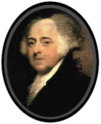
- Patrick Henry, who is most famous for his quote “Give me liberty, or give me death!,” wrote in a letter , “I am drawn along by the general inconvenience of living without them. I will not—I cannot justify it, however culpable my conduct.”
- George Washington wrote to a friend and said, “I can only say that there is not a man living who wishes more sincerely than I do to see a plan adopted for the abolition of [slavery].”Yet Washington owned slaves his entire life, beginning at age 11 with the death of his father until his own death.
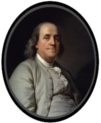
- Patrick Henry also wrote, “It is not a little surprising that Christianity … should encourage a practice so totally repugnant to the first impressions of right and wrong.”
- James Madison, in a letter to his father, told a story about his slave who was traveling with him. He concluded that he would have to sell the slave, though “I do not expect to get near the worth of him; but cannot think of punishing him by transportation merely for coveting that liberty for which we have paid the price of so much blood, and have proclaimed so often to be the right, & worthy the pursuit, of every human being.
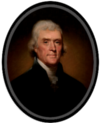
- George Mason, called ” the father of the bill of rights” said in his address to the Virginia Ratifying Convention, “As much as I value an union of all the states, I would not admit the southern states into the union, unless they agreed to the discontinuance of this disgraceful trade, because it would bring weakness and not strength to the union.” and “The augmentation of slaves weakens the states; and such a trade is diabolical in itself, and disgraceful to mankind.”
Anti-Slavery Efforts
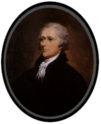
Before we judge too harshly, we must understand that slavery was established long before the Revolutionary War. For centuries, slavery had been a growing part of the economy world-wide, not just in the Colonies. In North America, slavery was established somewhere in the 1500’s, after Christopher Columbus visited.
There isn’t a specific date, of course, but it grew from there. Our Founding Fathers were born into a world whose economy relied on slave labor – from cotton, tobacco, and sugar cane plantations even to local businesses.

Some believe that since slavery was so commonplace, growing a conscience about it might easily not have happened at all. They suggest that the fact that they opposed slavery at all is incredibly radical for their time.
For whatever reason, they did, in fact “grow” consciences. By the quotes, letters, and documents they left behind, it is clear that most of our founding fathers wished to see slavery ended, though they did not believe it possible for it to happen in their lifetimes. Some of them, most notably Benjamin Franklin, Alexander Hamilton, and John Jay, were very supportive of the rapidly growing abolitionist movement.

Benjamin Franklin was President of the Pennsylvania society for Promoting the Abolition of Slavery, which included Jay and Hamilton. The year he died, he signed a petition for the abolition of all slavery. He died before he got to see it become a reality.
John Jay, as governor of New York, made numerous efforts to push anti-slavery laws. He founded the New York State Society for Promoting the Manumission of Slaves and New York’s African Free School, which taught freed slaves reading, writing, and basic arithmetic.
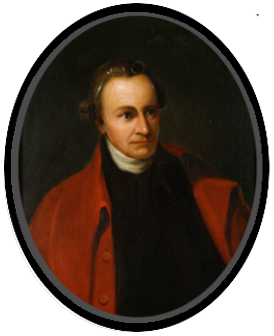
Alexander Hamilton grew up in the Caribbean islands. The majority of the sugar imported to the Colonies were exported from those islands and were maintained by rented out slaves. Almost everyone, no matter how poor, had several slaves that either worked for their masters or were rented out to make extra money for their masters.
Hamilton grew up with a deep rooted hatred of the slave trade that fueled his work as an avid supporter of the abolitionists his entire life.
What Kind of Slave Owners Were They?
The Founding Fathers public attitude towards slavery suggests that they were not cruel slave-owners nor mistreated those beneath them. Even James Madison, who never made any public anti-slavery efforts, is quoted as telling his overseers to be kind and compassionate to his slaves. Benjamin Franklin taught his slaves to read and write and cared very much for at least some of them. Franklin wrote home to his wife while he was traveling with his personal slave, Peter:
Peter was taken ill with a Fever and Pain in his Side before I got to Newcastle; I had him blooded there, and put him into the Chair, wrapt up warm, as he could not bear the Motion of the Horse, and got him here pretty comfortably. He went immediately to bed and took some Camomile Tea; and this Morning is about again and almost well.
Franklin also requested in his will that Peter and his wife Jemima be freed at his death.
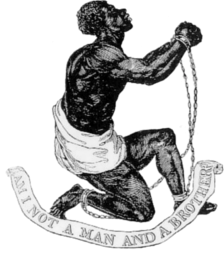
A British abolitionist wrote a letter to James Madison asking many questions about slavery, that gives a picture of how Madison viewed slavery, and what the prevalent beliefs about slavery were at the time. According to Madison, it was not uncommon for slave-owners to get attached to their slaves and the smaller the household, the more this seemed to be true, especially of our Founding Fathers. In letters from these men to and from their wives, they recall many stories about their personal slaves, ask about their well being, and in more than one case, they requested in their wills that those closest to them be freed at their deaths.
Thomas Jefferson is believed to have fathered one, if not all six, children belonging to his slave Sally Hemings. Her children were born with light skin and bore a marked resemblance to Jefferson. DNA tests on Jefferson’s and Hemings’ descendants rule out other theories and match at least one of Hemings’ children to Jefferson’s family. Historians believe the claims of Sally Hemings’ son Madison Hemings, that he is Jefferson’s child, to be true. Some people have speculated that Jefferson and Hemings were in love. He never claimed the children as his own, and they weren’t freed at his death, though Sally’s brothers were freed.
None of the Founding Fathers lived to see the legal abolition of slavery, though by the time they died, many of them had contributed toward preparing the Gradual Act for the Abolition of Slavery.


